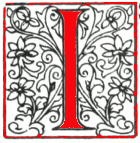
n the following passage from G. Kitson Clark’s The Making of Victorian England he points out Jane Austen's astute understanding of politically important changes in the idea of the Gentleman. In earlier times the definition of a gentleman — gentle meant noble — was quite clear and quite limited: to be a gentleman one had to have a title, belong to a family that had one, possessed a coat of arms, or "owned an appropriate estate." By the late eighteenth century, however, this strictly class-based notion of the gentlemen began to unravel, for as Kitson Clark points out, Britons “became less certain of the sufficiency of simple ideas of a hierarchy of birth and begin to supplement and confuse the conception of a gentleman for the attribution of mental and moral qualities.” Increasingly, those men who received the education of a gentleman and acted with the manners of gentlemen began to be considered gentlemen even though they did not belong to the proper class. We move, in other words, from renaissance definitions of gentleman to that of Cardinal Newman.
Jane Austen, Kitson Clark points out, “investigates with great subtlety” the social and political complications of these re-definitions of a class-based social position in Pride and Prejudice:
The Bennett family are by most tests below the line. Their connexions are low and unfortunate and the coarseness of the behaviour of Mrs Bennett and her younger daughters, indeed the over slippered ease of Mr. Bennett himself, all serve to emphasize the position. This Miss Bingley is keen to point out to Mr. Darcy, and Mr. Darcy cannot help mentioning in his first proposal of marriage to Elizabeth Bennett herself. But the sharper eye of Elizabeth, as certainly that of her creator has disclosed another set of values. Elizabeth finds little to admire in the arrogance of Mr. Darcy's aunt Lady Catherine De'Bourgh, though she was unquestionably highly placed in society nor for that matter in the behaviour of Mr. Darcy himself. Therefore she is at pains to tell him that he has spared her the concern which she might have felt in refusing him had he behaved "in a more gentlemanlike manner." This statement seems to have caused Mr. Darcey an unexpected shock, he apparently winced, physically, when she said it. In the novel the matter is then papered over. Mr. Darcy explains away part of his behaviour and goes on to reveal a more agreeable character most improbably concealed behind his pride, and the matter ends in a fairy-tale marriage between Darcy and Elizabeth. It difficult to avoid the belief that what really happened was that Darcy returned to sulk in Derbyshire and that Elizabeth married Mr. Wickham to learn at leisure than an agreeable manner is not necessarily evidence of the possession of more sterling qualities.
The end, however, does not signify; it is the moral of this and of other novels by Jane Austen which seems to be important, for the moral seems to be that, whereas the qualities which might reasonably be attributed to the ladies and gentlemen, refinement in matters, delicacy of sentiment and propriety in conduct, were of great value, they were not the monopoly of, they were not indeed always possessed by, those to whom the world conceded distinguished social positions. To make this point was not to stake a claim for general social equality or for the merits of honest worth where ever it might be found, it was not in effect to deny the values of gentility, but it was a reappropriation of them. The desire to do this was perhaps typical of an age when society was changing, when the old social values no longer completely satisfied, but when people were unwilling to abandon them altogether. [253-54]
Related material
- 'I love to hear my uncle talk of the West Indies': Jane Austen's negotiation with slavery in Mansfield Park
- Jane Austen's Historical Context: The French Revolution
Last modified 12 April 2017